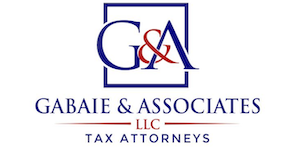Getting a CP40 notice from the IRS might feel intimidating—but it doesn’t have to. As long as you follow the proper steps and reach out to a tax attorney for help when needed, you can resolve this tax matter.
What Is the IRS CP40 Notice?
The IRS sends the CP40 notice when it has assigned your tax debt to a private collection agency. If you receive it, however, you should have received other notices from the IRS first. Before it sends the CP40, the IRS typically follows this sequence:
1. You receive a CP14 notice that indicates an unpaid tax balance.
2. The IRS sends a series of additional notices if the balance goes unpaid.
3. If you haven’t resolved the debt or set up an installment agreement, the IRS sends the CP40.
How is a private collection agency different from the IRS? Not much changes—you still have the same taxpayer rights. A private company can’t issue a levy or file a lien against your property, for example.
How to Handle the CP40 Notice if You Receive It
First, you should ensure that the CP40 you received isn’t a scam. If the letter showed up in your mailbox out of the blue, without any other notices from the IRS concerning an unpaid balance (such as the CP14 notice), it might be fake. Also, the IRS only contracts with specific private collection agencies. You can verify the names of these agencies on the IRS website. If your notice contains the name of a non-contracted IRS agency, it might be a scam.
After you ensure the CP40 is authentic, you should take immediate steps to settle your tax debt. If you owe less than $250,000, you can ask for a payment plan. You can’t make an offer in compromise or another similar tax settlement program through an agency, however.
Call a Reliable Maryland Tax Attorney for Help
If you’re wary about dealing with a private agency for your tax debt, you can ask a Maryland tax attorney for assistance. At Gabaie & Associates, LLC, we help taxpayers in Baltimore, Columbia, Frederick, and Rockville ensure they stay compliant with the IRS. Call our offices today at (410) 358-1500 or send us your information via our online form.

